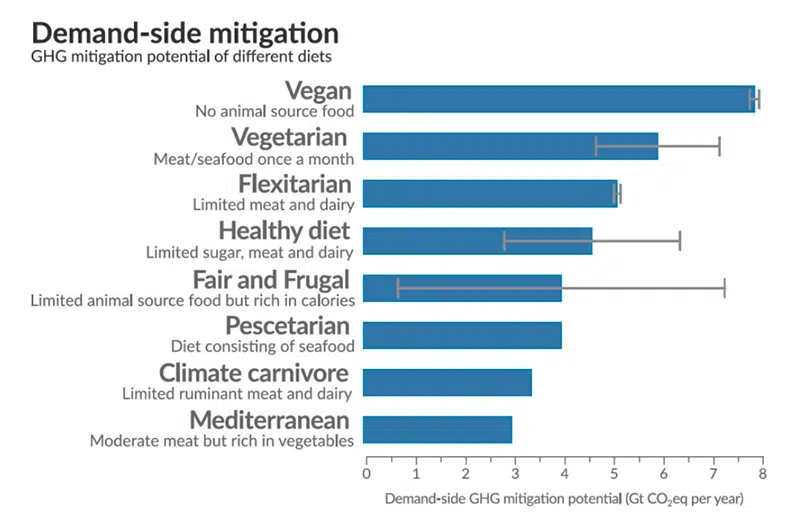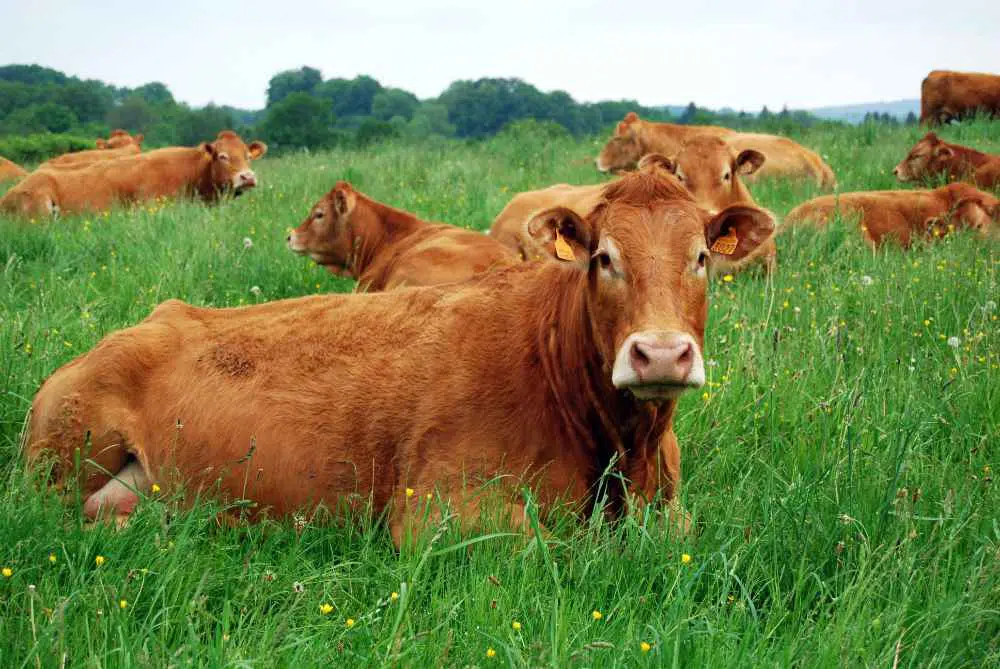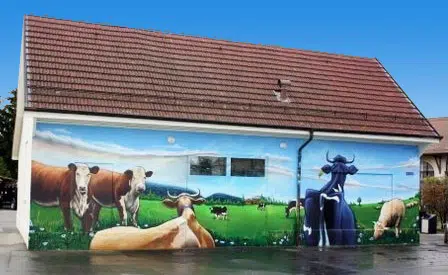Should we feel guilty about eating meat?
Meat is at the heart of today's controversies. Since we started sharing our content on our Facebook pagepage, we've regularly received scathing messages suggesting that we should be ashamed of promoting meat consumption, as feeding on animals would be considered unacceptable these days. Far from wanting to dismiss the debate, we wanted to share our point of view on the subject.
The environmental impact of meat
We couldn't broach the subject without looking at the environmental impact of meat consumption. Scientists agree that meat production is one of the main sources of greenhouse gases. The resulting consumption of water is also very high, and in some countries, the meat industry is responsible for massive deforestation (which in turn emits large quantities of greenhouse gases and seriously harms biodiversity).

Meat and health
In addition to environmental issues, it is legitimate to ask about its impact on health. Numerous studies have demonstrated the link between red meat consumption and cardiovascular disease. responsible for almost half of all deaths.
Blockbusters and excesses
Finally, the meat trade is a sector which, like so many others, suffers from the excesses of this mad race for profits imposed by our economic system. It is in this context that we all too often deplore the mistreatment of animals (also in Switzerland) and the sale of products from the other side of the globe, and this, of course, to the detriment of quality.
Sequence from the film Samsara (2011) about factory farming
And what about Meaty?
For those who are still wondering: we know all about it. In fact, these bitter observations were even a source of motivation for the creation of Meaty.ch. In order to draw up a coherent balance sheet of our meat consumption, we think it's important to put this information into perspective.
Putting things into perspective
The environmental issues surrounding meat depend very much on the context in which it is produced. For example, the deforestation associated with beef production in Brazil, or the water pollution caused by the beef industry in Australia, are problems that cannot be transposed to Switzerland, a country with abundant pastures and water. What's more, the alarming facts mentioned above point to the world's current meat production, which is largely industrialized and globalized. It goes without saying that local, small-scale production generates less impact.
With these considerations in mind, it is interesting to analyze the main arguments against meat consumption, this time in the Swiss context:
| Water consumption | |
|---|---|
| Report | It takes 15,000 liters of water to produce 1kg of beef. |
| Explanations |
Most of it is rainwater.
|
| In Switzerland / Chez Meaty |
|
| Cereal consumption | |
| Report | To produce 1kg of beef, you need between 7 and 15kg of cereals. |
| Explanations |
Animals eat our waste, which is not edible.
|
| In Switzerland / Chez Meaty |
|
| Greenhouse gases | |
| Report | Livestock farming is responsible for 14.5% of global GHG emissions. |
| Explanations |
The figures vary widely from country to country. Cows don't create carbon.
|
| In Switzerland / Chez Meaty |
|
| Use of agricultural land | |
| Report | 70% of the world's agricultural land is dedicated to livestock farming. |
| Explanations |
This figure is normal, considering the type of terrain.
|
| In Switzerland / Chez Meaty |
|
| Deforestation | |
| Report | Cattle farming is responsible for 60% of global deforestation. |
| Explanations |
This figure mainly concerns the Amazon.
|
| In Switzerland / Chez Meaty |
|
For the sake of simplicity, we apologize for not quoting the sources of this information. Most of this information is easily verifiable, notably on the websites of the Swiss Confederation and ViandeSuisse, and on IPCC and FAO reports.
Reduce your meat consumption
It is also interesting to note thata study by the IPCC (Intergovernmental Panel on Climate Change) study shows that limiting meat consumption (flexitarianism) can reduce greenhouse gas emissions as much as a vegetarian diet (which risks being enriched with dairy products).

Animal welfare and dignity
The proper treatment of animals, from birth to slaughter, is a subject that concerns many of our customers, and rightly so. In Switzerland, too, animals are subjected to unacceptable treatment in some profit-driven farms and slaughterhouses.
At Meaty, animal welfare and dignity are real concerns, not just marketing arguments. We know each of our partner breeders personally, so we can guarantee small-scale breeding under excellent conditions. Read our article on this subject.

What's more, all the animals sold on Meaty. ch (with the exception of poultry and pork, for which we have no choice of slaughter location) are slaughtered at the Meinier abattoir. Once again, this is an artisanal process. The animals are brought in by their breeder one after the other, so that they do not witness the death of their fellow animals. They are then stunned by a plunger that hits their brains in a fraction of a second. The veterinary surgeon present (at each slaughter) ensures that the animal is brain-dead (and therefore feels no pain) before proceeding with the bleeding. This is a far cry from some of the atrocities that have been witnessed on the industrial circuit.

As far as the impact on health is concerned, we feel that the studies are clear when they mention the danger of over-consumption ofmeat. Like everything else, there's no such thing as too much of a good thing. Meat is a nutrient-rich food that should not be abused. Properly used, it is a real asset to the body. What's more, the fact that any serious vegan diet requires vitamin B12 supplementation is, in our view, an important consideration when it comes to the question of whether meat is necessary for the body.
In view of this information, we try to promote responsible consumption that respects the principles of sustainable developmentthe aim of Meaty.ch is to guarantee 100% local meat, produced on a small scale, with respect for the animals and minimal waste.
In a polarized world where everything is "right" or "wrong", "good" or "bad", it's tempting to give an absolute answer to the question "Should we feel guilty about eating meat?". At Meaty, we prefer to take the middle path: eat less but eat better.